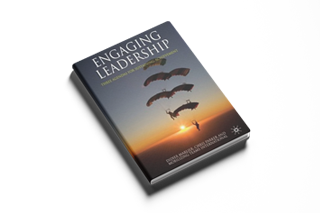A discrete, sometimes hidden, part of the work some of my senior partners and I do, has to deal with Team Coaching, in other words reconstruct the bridge of Trust that bad habits, tensions, pressure or lack of transparency have badly damaged. Mistrust, suspicion, interpretations and attribution of bad intentions are often surfacing if not open and sometimes violent conflicts emerge and we help people recreating a honest, high challenge/high support between them.
Creating a trustworthy environment is, following Lencioni or Losada, the basis for achieving outstanding results in a team but how do you create Trust?
“People are more likely to ACT their way into a new way of thinking, than THINK their way into a new way of acting” once wrote consultant Richard Pascale in his book, “Surfing the Edge of Chaos”. The problem is that, intelligent people seem to believe in the superiority of intellect on behaviours and, therefore insist on “Ganttcharting the behavioural changes” that their team and themselves badly need. It became very evident a day that I was running a seminar with a team of very bright executives. Their problems were not originating from their lack of intellect, far from that, but very much at the behavioural and subsequently emotional levels. So we worked hard. During several days, I provoked, observed, feedback, challenged, supported until finally the masks came down and we could start work on a healthy basis.
After we had agreed on a few behaviours which would restore trust amongst the team members, I encouraged them to start to “Walk the Talk” and “be the change” they wanted to see in their organization and reminded them that the consulting firm Hay was claiming that, following its research, 70% of an organization’s culture could be traced back and explained by the behaviours of its significant leaders. And then came “a classic”: A well intentioned senior leader in the team asked when we would anchor this behavioural change into a solid project… I was fascinated. Of course, for those highly intellectual seniors, change could only come from a well structured “Gantt chart”. I had to explain that the best way to kill the desired changes would be to suffocate them in a project and that behavioural change could be something immediate if they wished to do so…
And maybe are you like him: “Well, intellect is superior to behaviours. If it were that simple to change other people’s behaviours than just amending my own, things would be easier…” Oh yes? Well have a look at this old video: Behaviours generate behavior!!!
http://www.youtube.com/watch?v=XvAS2uektEA
A discrete, sometimes hidden, part of the work some of my senior partners and I do, has to deal with Team Coaching, in other words reconstruct the bridge of Trust that bad habits, tensions, pressure or lack of transparency have badly damaged. Mistrust, suspicion, interpretations and attribution of bad intentions are often surfacing if not open and sometimes violent conflicts emerge and we help people recreating a honest, high challenge/high support between them.
Creating a trustworthy environment is, following Lencioni or Losada, the basis for achieving outstanding results in a team but how do you create Trust?
“People are more likely to ACT their way into a new way of thinking, than THINK their way into a new way of acting” once wrote consultant Richard Pascale in his book, “Surfing the Edge of Chaos”. The problem is that, intelligent people seem to believe in the superiority of intellect on behaviours and, therefore insist on “Ganttcharting the behavioural changes” that their team and themselves badly need. It became very evident a day that I was running a seminar with a team of very bright executives. Their problems were not originating from their lack of intellect, far from that, but very much at the behavioural and subsequently emotional levels. So we worked hard. During several days, I provoked, observed, feedback, challenged, supported until finally the masks came down and we could start work on a healthy basis.
After we had agreed on a few behaviours which would restore trust amongst the team members, I encouraged them to start to “Walk the Talk” and “be the change” they wanted to see in their organization and reminded them that the consulting firm Hay was claiming that, following its research, 70% of an organization’s culture could be traced back and explained by the behaviours of its significant leaders. And then came “a classic”: A well intentioned senior leader in the team asked when we would anchor this behavioural change into a solid project… I was fascinated. Of course, for those highly intellectual seniors, change could only come from a well structured “Gantt chart”. I had to explain that the best way to kill the desired changes would be to suffocate them in a project and that behavioural change could be something immediate if they wished to do so…
And maybe are you like him: “Well, intellect is superior to behaviours. If it were that simple to change other people’s behaviours than just amending my own, things would be easier…” Oh yes? Well have a look at this old video: Behaviours generate behavior!!!
http://www.youtube.com/watch?v=XvAS2uektEA



Hi Didier,
thanks for sharing. Will keep this in mind next weeks whilst working on something new at KPN.
warm regards, Femmeke
Thank you Femmeke, it is feedback like yours that gives meaning to my work. All my wishes for your challenge with KPN…